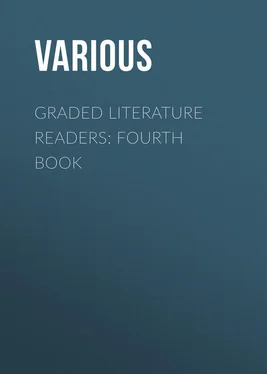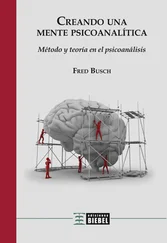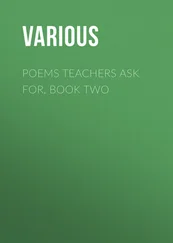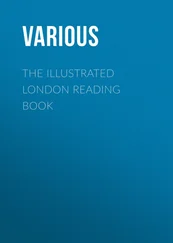Various - Graded Literature Readers - Fourth Book
Здесь есть возможность читать онлайн «Various - Graded Literature Readers - Fourth Book» — ознакомительный отрывок электронной книги совершенно бесплатно, а после прочтения отрывка купить полную версию. В некоторых случаях можно слушать аудио, скачать через торрент в формате fb2 и присутствует краткое содержание. Жанр: foreign_prose, на английском языке. Описание произведения, (предисловие) а так же отзывы посетителей доступны на портале библиотеки ЛибКат.
- Название:Graded Literature Readers: Fourth Book
- Автор:
- Жанр:
- Год:неизвестен
- ISBN:нет данных
- Рейтинг книги:3 / 5. Голосов: 1
-
Избранное:Добавить в избранное
- Отзывы:
-
Ваша оценка:
- 60
- 1
- 2
- 3
- 4
- 5
Graded Literature Readers: Fourth Book: краткое содержание, описание и аннотация
Предлагаем к чтению аннотацию, описание, краткое содержание или предисловие (зависит от того, что написал сам автор книги «Graded Literature Readers: Fourth Book»). Если вы не нашли необходимую информацию о книге — напишите в комментариях, мы постараемся отыскать её.
Graded Literature Readers: Fourth Book — читать онлайн ознакомительный отрывок
Ниже представлен текст книги, разбитый по страницам. Система сохранения места последней прочитанной страницы, позволяет с удобством читать онлайн бесплатно книгу «Graded Literature Readers: Fourth Book», без необходимости каждый раз заново искать на чём Вы остановились. Поставьте закладку, и сможете в любой момент перейти на страницу, на которой закончили чтение.
Интервал:
Закладка:
Travelers' Wonders
Dr. John Aikin (1747-1822): The author of many scientific and literary works. This selection is from "Evenings at Home," a volume of stories for children written by Dr. Aikin and his sister, Mrs. Barbauld. A hundred years ago, there were few books written especially for young people, except grammars, histories, and other text-books, and this volume of instructive stories was very popular.
1. One winter evening Captain Compass was sitting by the fireside with his children around him.
"Oh, papa," said little Jack, "do tell a story about what you have seen in your voyages. We have been reading some wonderful tales of adventure. As you have sailed round and round the world, you must have seen many strange things."
2. "That I have, my son," said Captain Compass, "and, if it will interest you, I will tell you some of the curious things I have seen.
3. "Once about this time of the year I was in a country where it was very cold. To keep warm, the people had garments made from an animal's outer covering which they stripped off his back while he was yet alive. They also wore skins of beasts, these skins being made smooth and soft in some way.
4. "Their homes were made of stones, of earth hardened in the fire, or of the stalks of a large plant which grew in that country. In the walls were holes to let in the light; but to keep out the rain and the cold air these holes were covered with a sort of transparent stone, made of melted sand.
5. "They kept their homes warm by means of a queer kind of rock which they had discovered in the earth. This rock, when broken, burned and gave out great heat."
6. "Dear me!" said Jack, "what wonderful rock! I suppose it was somewhat like flints that give out sparks when we knock them together."
"I don't think the flints would burn," said the Captain; "besides, this was of a darker color.
7. "The food, too, of these people was strange. They ate the flesh of certain animals, roots of plants, and cakes made of powdered seeds. They often put on these cakes a greasy matter which was the product of a large animal.
"They ate, also, the leaves and other parts of a number of plants, some quite raw, others prepared in different ways by the aid of fire.
8. "For drink they liked water in which certain dry leaves had been steeped. I was told that these leaves came from a great distance.
"What astonished me most was the use of a drink so hot that it seemed like liquid fire. I once got a mouthful of it by mistake, taking it for water, and it almost took away my breath. Indeed, people are often killed by it; yet many of them are so foolish that they will give for it anything they have.
9. "In warmer weather these people wore cloth made from a sort of vegetable wool growing in pods upon bushes. Sometimes they covered themselves with a fine glossy stuff, which I was told was made out of the webs of worms. Think of the great number of worms required to make so large a quantity of stuff as I saw used!
"The women especially wore very queer things. Like most Indian nations, they wore feathers in their headdress.
10. "I was also much surprised to see that they brought up in their houses an animal of the tiger kind, with sharp teeth and claws. In spite of its natural fierceness this animal was played with and caressed by timid women and children."
11. "I am sure I would not play with it," said Jack.
"Why, you might get an ugly scratch if you did," said the Captain. "The speech of these people seems very harsh to a stranger, yet they talk to one another with great ease and quickness.
12. "One of their oddest customs is the way that the men have of greeting the women. Let the weather be what it will, they uncover their heads. If they wish to seem very respectful, they stay uncovered for some time."
13. "Why, that is like pulling off our hats," said Jack.
"Ah, ah, papa!" cried Elizabeth, "I have found you out. All this while you have been telling us about our own country and what is done at home."
14. "But," said Jack, "we don't burn rock, nor eat grease and powdered seeds, nor wear skins and worms' webs, nor play with tigers."
15. "What is coal but rock?" asked the Captain, "and is not butter grease; and corn, seeds; and leather, skins; and silk, the web of a kind of worm? And may we not as well call a cat an animal of the tiger kind, as a tiger an animal of the cat kind?
16. "If you remember what I have said, you will find with your sister's help that all the other wonderful things I have told you about are ones we know quite well.
"I meant to show you that to a stranger our common things might seem very wonderful. I also wanted to show you that every day we call a great many things by their names without ever thinking about their nature; so it is really only their names and not the things themselves that we know."
Trăns pâr´ent: that can be seen through. Glŏs s ´y̆: smooth and shining. Rē̍ quīr e d´: needed.
We wear clothes made from sheep's – .
Our shoes are made of the skin of beasts, made smooth and soft: this is called – .
Some houses are built of – , which are made of earth hardened in the fire.
– are holes to let in light and air.
In these holes is put – , which is made of melted sand.
– is a rock which burns.
We eat – , – and – , which are the flesh of animals.
We eat cakes made of the powdered seeds of – and – .
We also use for food – , – , and – , which are the roots of plants.
The leaves of – are cooked and eaten.
– grows in pods upon bushes, and is used for making clothes.
– is a glossy fabric made out of the webs of worms.
Ants
1. How often you have seen ants running about the lawn, but have you ever stopped to watch them and to study their habits? Let me tell you some facts which have been learned about them. I am sure they will give you a new interest in these wise little creatures.
2. It may seem to you that ants run to and fro in an aimless way; but this is not the case, for they have work to do, and they are doing it with all their might. They cannot see far before them, and it is by means of their feelers, or perhaps by scent, that they find their way.
3. You must remember that small weeds are to them like huge trees, so we must look upon them as travelers following a track through great forests. You will see, too, that ants stop from time to time to rest and to clean off the particles of earth which cling to them.
4. Ants, like bees, do not enjoy living alone. In their homes, which we call ant-hills, many thousands of them live together. These homes are like great cities; indeed, such places as London and New York are the only human cities which compare with them in size. There is never any disorder in these great homes, although each ant is free to build, fight, hunt, or go where it pleases.
5. If the top of an ant-hill be taken off, there will be found nurseries, chambers, halls, and kitchens – all snug and waterproof.
6. In some countries ants build their houses above ground and tunnel out great cellars under them. But most of the ants we know make their homes in the earth, where they can keep warmer than in nests above ground.
7. Some ants tunnel out a home in the ground and make a little hillock of earth around the top. At night they close the entrances with leaves, bits of straw, and tiny twigs. If you watch their nests in the morning you see the busy little ants open their doors and hurry out.
8. Some hunt insects for food; some gather honey from flowers; others milk their cows. These cows are plant lice, which yield a sweet juice of which ants are very fond. So ants keep herds of these little insects. They keep also beetles and other insects as pets, or for use.
Читать дальшеИнтервал:
Закладка:
Похожие книги на «Graded Literature Readers: Fourth Book»
Представляем Вашему вниманию похожие книги на «Graded Literature Readers: Fourth Book» списком для выбора. Мы отобрали схожую по названию и смыслу литературу в надежде предоставить читателям больше вариантов отыскать новые, интересные, ещё непрочитанные произведения.
Обсуждение, отзывы о книге «Graded Literature Readers: Fourth Book» и просто собственные мнения читателей. Оставьте ваши комментарии, напишите, что Вы думаете о произведении, его смысле или главных героях. Укажите что конкретно понравилось, а что нет, и почему Вы так считаете.












